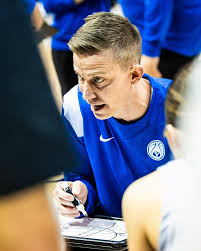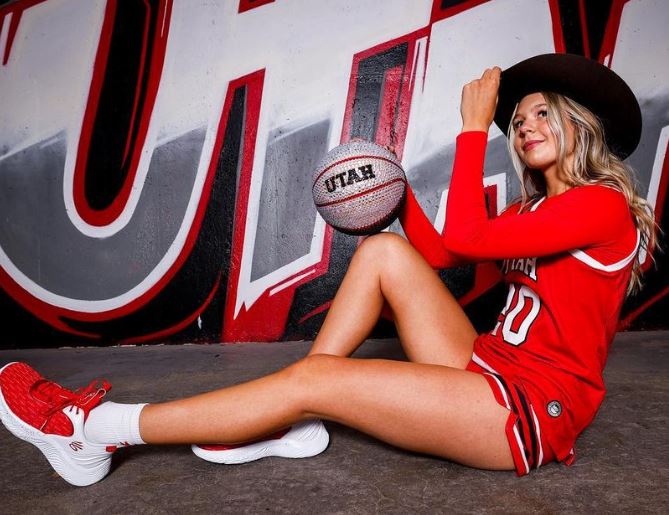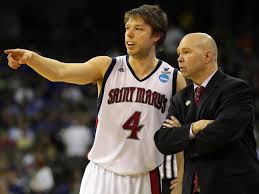We are still about 5 weeks away from the tip-off of a new college basketball season, which means that we have plenty of time to start preparing for the action ahead. We will do so via a series of season previews featuring the best players/coaches in the country. HoopsHD’s Jon Teitel continues our coverage with BYU women’s assistant coach Lee Cummard, who talked about conference realignment and his expectations for this season.

In 2004 you led your Mesa High School team to a state title and were named Arizona high school POY: what did it mean to you to win a title? At the time it was the peak of everything that was important to me in my life. Most of my teammates were locals who had all played together with me. We had been knocking on the door for a couple of years so it was great to finally win it. It was a family event because my cousin was 1 of my teammates: it is a fond memory for sure.
You were recruited by several great schools including Gonzaga/Miami/San Diego State: what made you choose BYU? I was being recruited by a few schools early on and then I blew up on the scene later in my career. I knew that I wanted to stay out west and grew up watching ASU/UofA. I kind of kept BYU at a distance to start but they did a great job recruiting me. Dave Rose was an assistant coach at the time and he and the rest of the staff just stayed the course: I was buying what they were selling. It came down to ASU vs. BYU until I took a visit to each school. BYU was the blandest experience you could imagine…and ASU was the complete opposite! Ultimately it came down to what would be best for me as a person and the academic experience. I am completely biased now that I made the best choice: 100%. 1 of the biggest blessings of my decision is that I needed to get away, which I realized after the fact.
You played for Coach Rose: what made him such a good coach, and what was the most important thing that you ever learned from him? My 1st year was his 1st year so we kind of climbed the mountain together. I also coached for him for 3 years after I retired as a player. I got 2 of my old teams together earlier this month to reminisce about those good times. He was great at getting us out of our comfort zone: at 1st he was pushing us so hard that it seemed like nobody was making a shot! There are a lot of big egos/aspirations in the locker room but when I coached for him he got us to believe that we could achieve even more than we thought if we played as a team. I also learned how much time/energy/concern he put into his guys, which really impressed me.
In 2008 you were named conference co-POY/AP All-America Honorable Mention: what did it mean to you to receive such outstanding honors? It was like my high school experience. The Cougars only won 9 games the year before I arrived, but we took a big step during my 1st year by winning 20. After my freshman year my whole perspective changed: everything I wanted to achieve could happen if I put the team 1st, and that has been my MO since then. You must decide how you can help the team win, and then let the talent go out there and compete. It was a tremendous honor to win those awards…but the main goal was to win a championship.
You finished your career with 53.5 FG%/43.1 3P%/84.2 FT%: what is the secret to being a great shooter? Shot selection is key! I always wanted to wait until my rhythm was right. I put the work in for sure…but was also lucky at times. If you are choosier with your shot selection, then your percentages can increase 3-5%. You should wait until you get a good pass and are going to the rim.
After going undrafted in 2009 you ended up playing pro basketball for 7 years in Belgium/France/Japan: what is the biggest difference between basketball in the US vs. basketball overseas? The American game has historically been a few years behind Europe. Some of the current concepts/spacing in the US originated in European basketball: perhaps due to athleticism, but more about a focus on fighting for the best shot. Corner threes, catch-and-shoot threes, and the analytic side are big now, but I never recall hearing anything about that when I was in high school/college. It changes the outcome when you have a lot of data points. The shot-making ability in the NBA/WNBA is other-worldly, especially in the playoffs.
After retiring as a player, you spent a few years at your alma mater as a grad assistant/assistant coach for the men’s team: what is the biggest difference between coaching men vs. coaching women? The conversations are a little bit different. On the men’s side every single player thinks they will go to the NBA and get 3 contracts, which leads to a desire to constantly be in the gym. The women want to be professionals as well but some of them have other aspirations: they are slightly more focused on their academics, which comes at the cost of putting in the extra work in the gym. However, this is the 1st year where our roster always wants to be in the gym and improve on their craft. You are not drawing up alley-oop plays but the preparation is identical. There is less entitlement/ego at BYU: I get to work with phenomenal student-athletes.
Your team lost its top-2 scorers from last year (Lauren Gustin/Kailey Woolston): how will you try to replace all that offense/leadership? We also lost a huge piece in Kaylee Smiler, who is now playing pro ball in New Zealand. Gustin was all-conference and led the country in RPG so we will have to get that done by committee, including some guards. We have some transfers who can really score and a couple of freshmen playmakers, so we feel very good about our group. Kailey was as good as you can ask for as a freshman to come in and score/shoot. Sneakily, Smiler might not have shown up as much in the box score but that is a hole we will have to fill as well.
Your conference has seen a lot of additions/subtractions from last year: any thoughts on conference realignment? It is going to be interesting: as an Arizona guy I am happy to have 2 trips back home. All 4 of the former Pac-12 schools are great additions and are historically good programs. Coach Adia Barnes has done a great job at Arizona and beat us a few years ago so we owe them. Utah was as good as anyone we saw last year and has some good pieces coming back: they were a legit Final 4 team last year until Gianna Kneepkens got hurt. Iowa State is great, TCU has reloaded, and West Virginia has everyone back: it is a tough league. We also no longer need to worry about the size/athleticism of Texas & Oklahoma. We learned a lot in year 1 and hope to do even better this year.
What are your goals for the upcoming season, and what are your expectations for the upcoming season? With Gustin leaving it will change how we play: you will see more of the modern game (spacing the floor, letting playmakers create, etc.). Offensively we will try to create an advantage and defensively we will use our versatility. Most teams in our league have monster in the middle who can score so we will try to change up defenses and maybe use some press/zone depending on the opponent. We will play a little smaller than in the past, have more ball-screen action to spread the floor, and hopefully shoot it well.









